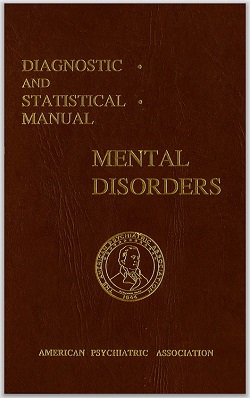The American Psychiatric Association (APA) has released a new edition of the Diagnostic and Statistical Manual of Mental Disorders (DSM-5). This manual is used by mental health professionals to diagnose mental disorders. One of the important changes in this, is the addition of online assessment measures. These measures are widely known as DSM Tests. These measures allow for a more accurate diagnosis of mental disorders, and they can be used to track patient progress over time.
Contents
- 1 DSM: American Psychiatric Association
- 2 Factors To Consider In Online Measure
- 3 DSM Tests Online Measures
- 4 Assessment Measures For Youth
- 5 Self Assessment Measures
- 6 Assessment Measures For Children
- 7 How DSM Help In Mental Disorders?
- 8 Advantages Of DSM Tests
- 9 Limitations Of DSM Tests
- 10 Conclusion
- 11 A Word From Therapy Mantra
DSM: American Psychiatric Association
 The association of American psychiatrists is responsible for the creation of the DSM. Which stands for Diagnostic and Statistical Manual of Mental Disorders. The DSM is used by clinicians to diagnose patients with mental disorders. The most recent version of the DSM is the fifth edition, which was published in 2013.
The association of American psychiatrists is responsible for the creation of the DSM. Which stands for Diagnostic and Statistical Manual of Mental Disorders. The DSM is used by clinicians to diagnose patients with mental disorders. The most recent version of the DSM is the fifth edition, which was published in 2013.
The APA is considerably more transparent about the development of the DSM-V. More than it was for the DSM-IV.
The process began with a call for proposals in 2008. Likewise, it resulted in the formation of 13 workgroups. Each charged with considering specific disorders or topics.
Over 1200 experts were involved in the development of the V edition. Including psychiatrists, psychologists, social workers, counselors, nurses, and patient advocates. The APA also solicited input from the general public through its website.
However, the draft criteria for each disorder were then posted online. Also, it is used by professionals and the general public.
Factors To Consider In Online Measure
Some of the factors which one should keep in mind while using the assessment measures are:-
- The appropriateness: It is important to consider whether the content and format of a measure are developmentally and culturally appropriate for a given population.
- The psychometric properties: It includes things like reliability and validity. Important is to select a measure that has good psychometric properties. Eventually, it will enhance confident in the results you obtain from it.
- Ease of administration and scoring: You will want to select a measure that is easy to administer and score. So that you do not waste valuable time on something that is difficult to use.
- Cost of the measure: Some measures can be quite expensive, so it is important to consider the cost before making a purchase.
- Copyright status: It is important to make sure that you are using a measure that is in the public domain or that you have permission to use.
Simultaneously, these are some of the factors to consider while using assessment measures. Keep these in mind and you will be able to choose the right measure for your needs.
In addition, clear about the following questions.
- Type of disorder are you trying to assess?
- Age group of the patient?
- What symptoms are you looking for?
- How long do you want the assessment to take?
At last, you must have answers for these questions to get start with measures.
DSM Tests Online Measures
 These online measures are designed to provide an estimate of your symptoms and mental health status. They can be helpful tools for you and your clinician in understanding health. But should not be used as a substitute for a full evaluation by a qualified professional.
These online measures are designed to provide an estimate of your symptoms and mental health status. They can be helpful tools for you and your clinician in understanding health. But should not be used as a substitute for a full evaluation by a qualified professional.
Different Types DSM Tests:
- Self-report measures: These are questionnaires that you can complete on your own.
- Clinician administered measures: These are questionnaires that are completed by a clinician during an interview with the patient.
- Computerized tests: These are tests that are administered through a computer. Usually require some sort of response from the participant. Such as clicking on buttons or typing in answers.
Assessment Measures For Youth
DSM-IV TR Self-Report Scale for Adults
The DSM-IV TR self-report scale is a 20 question measure. That screens for the presence of DSM-IV diagnoses. It is based on the diagnostic criteria from the DSM-IV text revision (TR). The questionnaire takes about five minutes to complete. This measure is appropriate for adults 18 years of age or older.
Dimensional Assessment of Personality Pathology – Adult Version (DAPP)
The DAPP is a 240 question measure. It screens for the presence of personality pathology. Assesses nine dimensions of personality pathology. Which are: antisocial, avoidant, borderline, histrionic, narcissistic, obsessive-compulsive, paranoid, schizoid, and schizotypal.
The questionnaire takes about 45 minutes to complete. This measure is appropriate for adults 18 years of age or older.
Clinical Global Impression (CGI) – Severity
The CGI severity scale is a seven-point scale. It is used to rate the overall severity of your mental health condition. This measure is appropriate for adults 18 years of age or older.
Mental Health Inventory (MHI)
The MHI is a 54 question measure. That screens for the presence of psychological symptoms. It assesses four dimensions of mental health, Such as, anxiety, depression, somatic symptoms, and social functioning.
The questionnaire takes about five minutes to complete. This measure is appropriate for adults 18 years of age or older.
Symptom Checklist 90-R (SCL-90-R)
The SCL-90-R is a 90 question measure. That screens for the presence of a wide range of psychiatric symptoms. It assesses nine dimensions of mental health. Such as, somatization, obsessions/compulsions, interpersonal sensitivity, depression, anxiety, hostility, phobic anxiety, paranoid ideation, and psychoticism.
The questionnaire takes about 20 minutes to complete. This measure is appropriate for adults 18 years of age or older.
Self Assessment Measures
 Self-Rating Depression Scale (SDS)
Self-Rating Depression Scale (SDS)
The SDS is a 20 question measure that screens for the presence of depressive symptoms. The questionnaire of DSM tests takes about five minutes to complete. This measure is appropriate for adults 18 years of age or older.
Self-Rating Anxiety Scale (SAS)
The SAS is a 20 question measure that screens for the presence of anxiety symptoms. The questionnaire takes about five minutes to complete. This measure is appropriate for adults 18 years of age or older.
Social Phobia Inventory (SPIN)
The SPIN is a 28 question measure that screens for the presence of social phobia symptoms. It takes about ten minutes to complete. This measure is appropriate for adults 18 years of age or older.
PQ 15 – PTSD Symptom Scale
The PQ 15 is a 15 question measure that screens for the presence of PTSD symptoms. The questionnaire takes about five minutes to complete. This measure is appropriate for adults 18 years of age or older.
Anxiety Disorders Interview Schedule for DSM-IV – Child Version (ADIS-C)
The ADIS-C is a structured interview used to diagnose anxiety disorders in children and adolescents. It consists of modules for seven different disorders: separation anxiety disorder, social phobia, specific phobia, panic disorder with and without agoraphobia, generalized anxiety, obsessive-compulsive, and post-traumatic stress disorder.
The interview takes 30-60 minutes to complete depending on which modules are used.
Assessment Measures For Children
These are primarily of two types, such as:
Personality Inventory for Children (PIC)
This assesses personality traits in children and adolescents. Between the ages of eight and eighteen. It consists of two hundred items. That include areas such as anxiety, aggression, impulsivity, and social withdrawal.
The PIC has been found to be a reliable and valid measure of personality characteristics in youth.
Child Behavior Checklist (CBCL)
The CBCL is a questionnaire of DSM tests. Which was developed to assess problem behaviors in children aged four to eighteen years old. It contains 113 items that cover areas such as aggressive behavior, rule-breaking, social problems, and emotional problems.
The CBCL has been found to be a reliable and valid measure of problem behaviors in children.
Both the PIC and the CBCL are available online.
How DSM Help In Mental Disorders?
 Mental disorders are real, treatable medical conditions. If you think you may have a mental disorder, don’t hesitate to reach out for help. Early intervention and treatment can make a big difference in recovery. There are many resources available to you. Including online assessment measures. With proper care, you can live a full and healthy life.
Mental disorders are real, treatable medical conditions. If you think you may have a mental disorder, don’t hesitate to reach out for help. Early intervention and treatment can make a big difference in recovery. There are many resources available to you. Including online assessment measures. With proper care, you can live a full and healthy life.
One resource that may be helpful to you is the DSM-IV-TR. This online assessment tool can help you learn more about your symptoms. And will give you an idea of what diagnosis may be appropriate. However, it’s important to remember that this is just a screening tool. Only a trained mental health professional can give you a definitive diagnosis.
If you’re not sure where to start, consider talking to your primary care doctor. He or she can provide referrals to mental health professionals in your area. You can also find mental health services in your community. Don’t wait to get help – reaching out is the first step on the road to recovery.
Advantages Of DSM Tests
Online assessment measures are really important in the treatment of psychiatric disorders. Below are some advantages:
- Gives an idea about the disorders and their symptoms.
- Helps in deciding the course of treatment.
- Helpful in monitoring the progress of the patients.
- Provides a way to compare different treatments.
- Gives the clinicians an idea about the disorders.
- Supports patients with their adherence to the treatment.
- The measures are becoming more reliable and valid with time.
- Provides a cost-effective way to assess patients worldwide.
Overall, DSM tests benefit both clinicians and patients. Through providing information that can help guide treatment decisions. Patients can use these measures to track their own progress. And see how their symptoms change over time.
While there are many benefits to using online assessment measures. It is important to keep in mind that these tools are not perfect, only as comprehensive evaluation. Along with other clinical information. If you have any concerns about your mental health. Then, please talk to a qualified professional.
Limitations Of DSM Tests
 Everything in the world has advantages and disadvantages. Even the process of assessment in psychiatric treatment. While assessment can give important information that leads to an accurate diagnosis and appropriate treatment plan. There are potential drawbacks too.
Everything in the world has advantages and disadvantages. Even the process of assessment in psychiatric treatment. While assessment can give important information that leads to an accurate diagnosis and appropriate treatment plan. There are potential drawbacks too.
Here are three limitations of DSM Tests assessment in psychiatric treatment:
- Can be costly – Many insurance companies will not cover the cost of a comprehensive assessment. Which can range from $500 to $2000. This means that the patient or their family must pay out-of-pocket for the evaluation
- Time-consuming – A comprehensive assessment usually takes several hours to complete, spread out over one or more sessions. This can be disruptive to work and school schedules. It can create obligations such as childcare or caregiving for another family member.
- Not be accurate – The assessment is only as good as the person who conducts it. In any cases, if the professional is using it inappropriately. Then, the results of the assessment may be inaccurate.
These are just a few of the potential limitations of assessment. Still, it’s important to weigh the pros and cons before making a decision. That whether or not to undergo an evaluation.
Conclusion
Online assessment measures can be useful in psychiatric diagnosis. It consists their own advantages and disadvantages. However, they are definitely worth considering as a part of the diagnostic process.
Therefore, the DSM tests measures are not to used as a source of information about someones’ mental health. In other words, these information sources should be concerned with patients only. For instances: clinical interviews, medical records, and psychological testing, etc.
With this approach, the measures can provide valuable insights into a person’s mental health.
A Word From Therapy Mantra
Your mental health — Your psychological, emotional, and social well-being — has an impact on every aspect of your life. Positive mental health essentially allows you to effectively deal with life’s everyday challenges.
At TherapyMantra, we have a team of therapists who provide affordable online therapy to assist you with issues such as depression, anxiety, stress, workplace Issues, addiction, relationship, OCD, LGBTQ, and PTSD. You can book a free therapy or download our free Android or iOS app.


